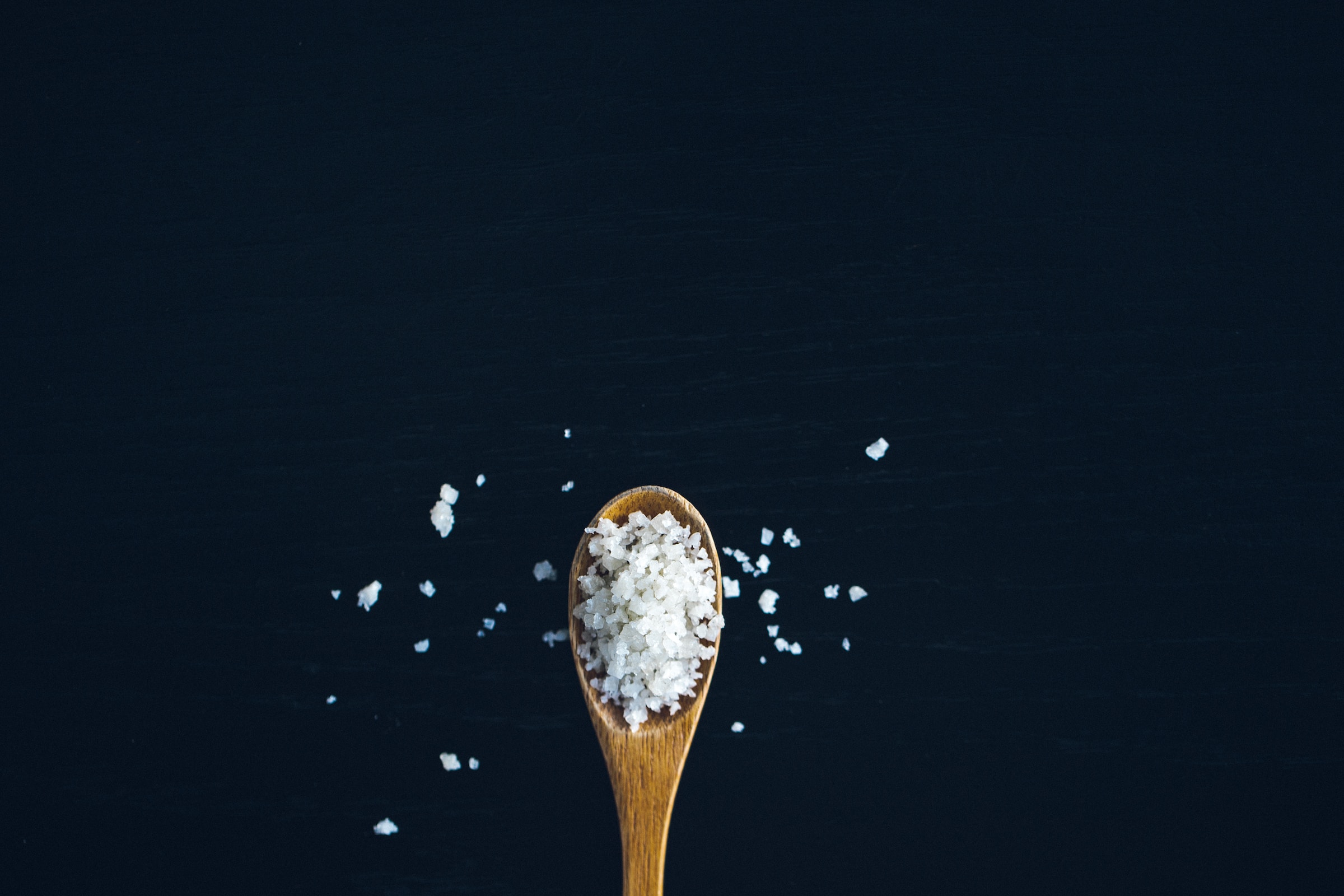
What was once called a “diet trend,” intermittent fasting protocols are here to stay — serving as a useful health and wellness tool that can be combined with nearly any type of diet. Recent news published by the International Food Informational Council (IFIC) found that almost 10% of Americans utilize some form of intermittent fasting regularly. Fasting provides tons of attractive benefits, from weight loss to improved energy levels. If you’ve tried fasting, you might have wondered, “Does salt break a fast”? Below, we’ll break down everything you need to know about consuming salt during your fast.

Does salt break a fast?
The basic rules of intermittent fasting prohibit the consumption of any calories during the fasting window. Consuming salt on its own contains no calories, which makes it safe to consume salt while fasting. Not only is it safe to consume salt during your fast, but it might even make your fast easier.
Sodium plays several critical roles in the body, such as conducting nerve impulses, contracting, and relaxing muscles, and maintaining the proper hydration balance. Intermittent fasting makes you prone to low sodium, so consuming salt during your fast can help improve your fast.

Benefits of consuming salt while fasting
Most intermittent fasting windows range from 16 to 24 hours (except prolonged, multi-day fasts). During this period, with no food consumption, the body’s glycogen stores are depleted. Glycogen (the glucose stored in your body) binds to water naturally in the body. As such, when glycogen stores are depleted — sodium levels are also depleted. In turn, you may find yourself dehydrated during a fast as your body lacks the minerals it needs to function optimally. Supplementing with sodium during a fast, alongside other key electrolytes, can help you crush your fast and feel great during it.
The amount of sodium to consume during a fast depends on your activity levels. After a high-intensity workout, while fasting, your body may need more minerals replenished. On average, consuming between 40 and 500 milligrams of salt is a good range to aim for during your fasting period. It’s important to listen to your body and adjust your electrolyte consumption accordingly. Replenishing your lost sodium and other nutrients will not only leave you feeling better during your fast but also help to enhance exercise performance for fasted workouts.
For people who are new to intermittent fasting, consuming enough salt during the fasting period is also important to help manage the keto flu transition period. As your body adjusts to fasting, you may enter a state of ketosis, depleting your electrolyte levels even more.

Low sodium while fasting
If you have low sodium levels during a fast, you may begin to experience symptoms of hyponatremia. Common symptoms include headaches, fatigue, fainting, muscle weakness, or cramping. To help replenish sodium levels during a fast, some people will add salt to black coffee or tea or put salt directly on the tongue. However, this isn’t always the most enjoyable way to increase your sodium levels during a fast.
Consuming zero-calorie electrolyte powder during your fast can help replenish depleted sodium levels alongside other important minerals. It’s important to look for an electrolyte powder that contains no sugar or calories, as these electrolytes can break a fast. Electrolyte powder or droppers often provide other nutrients such as zinc, potassium, calcium, phosphorous, manganese, and chloride — which can help you feel your best during a fast. Unflavored electrolyte droppers can also be added to water to drink during a fast.

The best type of fasting salt
All types of salt do not contain calories and can safely be consumed on the fast. However, traditional white table salt is highly processed and does not make the best fasting salt. This is because it does not contain the same trace minerals as other types of salt. Instead, the best type of salt to consume during intermittent fasting is salts that are not as highly refined, such as Himalayan Pink Sea Salt. When compared to standard table salt, Himalayan Pink Sea Salt contains more potassium, magnesium, iron, and sodium. Other options for salt while fasting include Celtic Sea Salt or Baja Gold Sea Salt.
Optimizing your fasting routine
Salt while fasting is perfectly safe to consume and can help you to optimize your fasting routine. The lost nutrients that occur during your fasting window must be replaced in order to prevent fluid and electrolyte imbalances. When it comes to fasting, there’s no one-size-fits-all approach. It’s best to have multiple ways to manage your electrolyte levels during your fast until you find what works best for you.




